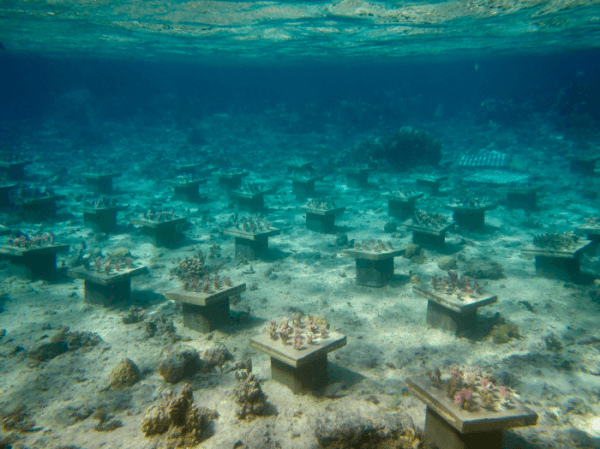Corals are the foundation species of tropical reefs worldwide, but stresses ranging from overfishing to pollution to warming oceans are killing corals and degrading the critical ecosystem services they provide. Because corals build structures that make living space for many other species, scientists have known that losses of corals result in losses of other reef species. But the importance of coral species diversity for corals themselves was less understood.
A new study from two researchers at the Georgia Institute of Technology provides both hope and a potentially grim future for damaged coral reefs. In their research paper, "Biodiversity has a positive but saturating effect on imperiled coral reefs," published October 13 in Science Advances, Cody Clements and Mark Hay found that increasing coral richness by ‘outplanting’ a diverse group of coral species together improves coral growth and survivorship. This finding may be especially important in the early stages of reef recovery following large-scale coral loss — and in supporting healthy reefs that in turn support fisheries, tourism, and coastal protection from storm surges.
The scientists also call for additional research to better understand and harness the mechanisms producing these positive species interactions, with dual aims to improve reef conservation and promote more rapid and efficient recovery of degraded reefs.
Read more at: Georgia Institute of Technology
Coral Gardens in French Polynesia ( Photo Credit: Georgia Tech)


